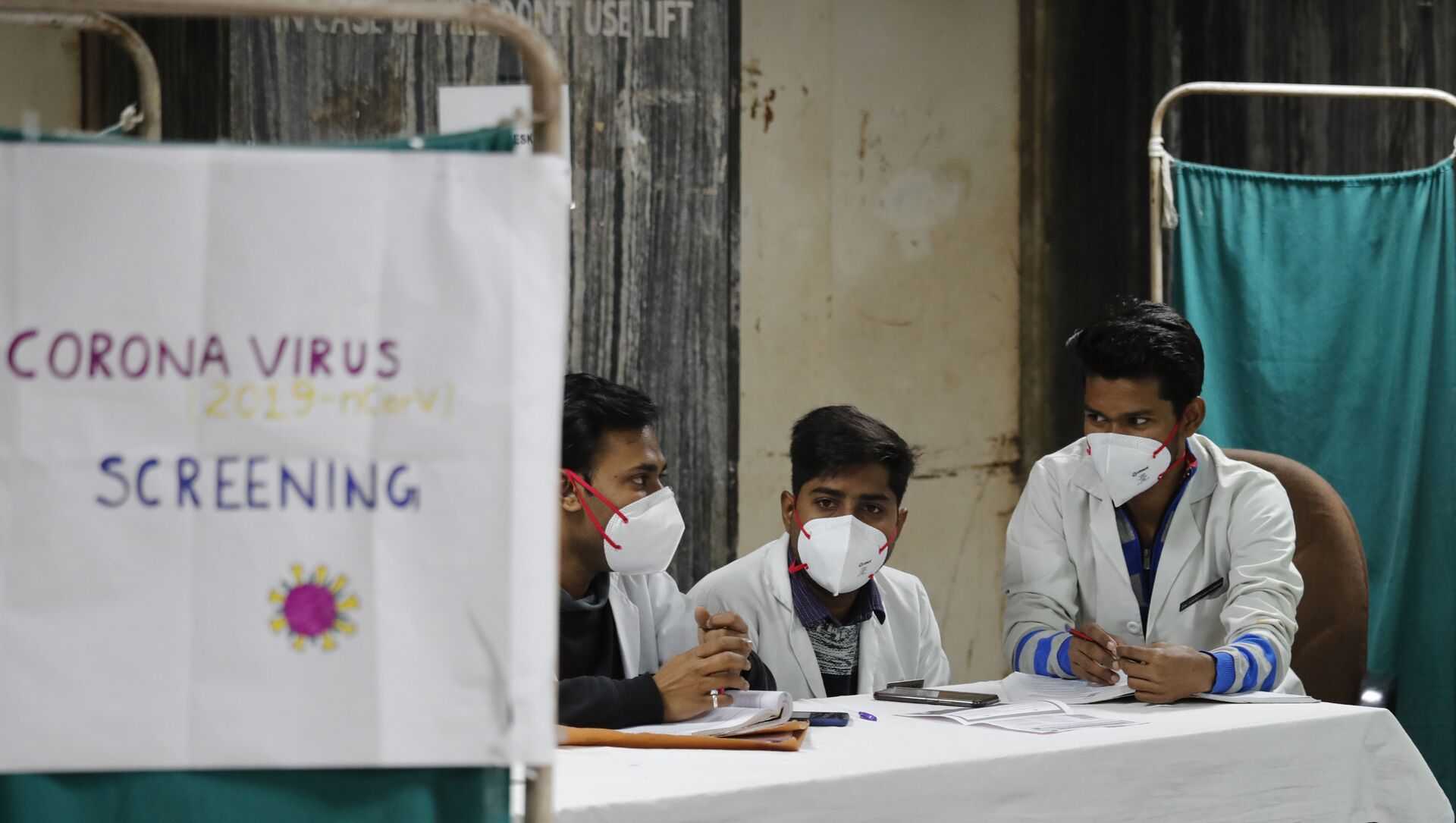As India fights its deadly second wave of coronavirus, the country's health workers and caregivers are protesting about the government's seeming apathy.
In the southern states of Andhra Pradesh and Telangana, thousands of junior doctors have threatened to go on strike indefinitely from Wednesday after talks with authorities failed.
Similarly, ASHA workers - women health workers accredited by the government who are the first point of contact in rural India - went on strike across the country to demand better pay and facilities.
“From 9 am on 26 May, all non-COVID electives except emergencies will be boycotted. Furthermore, all COVID-related electives except intensive and critical care units will also be boycotted. If our demands are not considered by 28 May, we will boycott non-COVID emergencies and COVID ICUs as well," the Telangana Junior Doctors' Association said.
The Andhra Pradesh Junior Doctors’ Association demanded that all final-year postgraduate medical students of both government and private colleges be considered senior residents.
The junior doctors have demanded a rise in wages on a par with senior resident doctors. But the strike is not just confined to the southern states: recently in central India's Madhya Pradesh, doctors went on an indefinite strike demanding better facilities for their colleagues who contract coronavirus.
Notably, the state governments, in an attempt to increase manpower have decided to lure medical interns and final-year medical students to the COVID-19 frontline with stipends of between $50 and $100 a month.
But Mukund Rao, a junior doctor from Telangana, complained: "This is not a new demand. We have been protesting since last year asking for more pay. We are made to perform all the duties of a senior doctor, yet we are paid so little. How can they pay us so little, especially at a time of pandemic? They continue to call us warriors and paint memorials to us, but without proper facilities, we are putting our lives at risk."
There are more than a million ASHA workers across the country who have been at the frontline of the battle against COVID-19 since the onset of the pandemic. These workers went on a one-day strike demanding money they are owed, medical insurance, a COVID-19 allowance, a regular immunisation programme and other things.
Despite being paid as little as $60 to $100 a month, these women walk on foot for miles in rural areas to help patients. The workers are known to play a key role in spreading awareness about chronic diseases and immunising the public against them.
However, in several states the government has failed to provide masks or sanitisers, exposing workers to greater risk.
Ashima, a West Bengal-based ASHA worker has been on the COVID-19 frontline since 2020. She alleged that she has to work more than 12 hours a day in remote hamlets without protective equipment. “I am overworked and underpaid. This has been commonplace for us for many years but now we are at a higher risk of contracting the virus. I can’t go back to my children. I saw them last in April. How can this continue,” she demanded.
Alo Sen, another ASHA worker, aged 52, echoed Ashima’s views. “Look at doctors - they get paid well and even receive PPE kits. We are doing the same job in rural areas, we are also saving lives, but we don’t get enough money or facilities for it,” she said.
India has recorded 26 million COVID-19 cases - the second-highest number after the US - after there was a massive surge in rural areas where two-thirds of the country's 1.37 billion inhabitants live.





